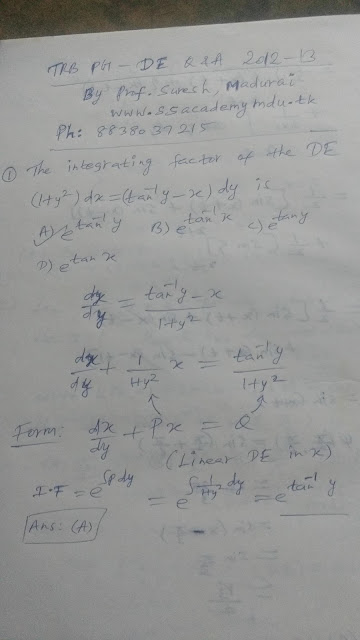TIPS:
CSIR-UGC NET exam of Mathematical Science is divided in three parts,
Part A(30 marks),
Part B(75 marks) and
Part C(95 marks)
Part A has 20 aptitude questions, each question is of 2 marks and one can attempt maximum 15 questions. Since this part is purely aptitude so there is no need to prepare specially for this part. Nagetive marking: 1/2 negative marks for each wrong answer.
Part B has 30 questions each of 3 marks but one can attempt maximum 25 question. Only one option is correct in this part. Negative marking: 0.75 negative marks for each wrong answer.
Part C has 60 questions each of 4.75 marks but one can attempt maximum 20 questions. In this part one or more options can be corrects, candidates have to fill all correct option(there are no partial weight-age, e.g if one question has 3 given options are correct and candidate fill only 2 bubbles out of correct option then candidate will not get any marks for this question). No negative marking in this part.
Part C has 4 units but 4th unit is statistics. So only first 3 units are of mathematics. First 3 units has 42 questions, and one has to attempt 20 questions. So 3 units are more then sufficient. In particular most people do only 2 units.
important topics and books unit wise.
Unit 1:
Real Analysis: Functions of several variables, Bolzano Weierstrass theorem, Heine Borel theorem. continuity, uniform continuity, mean value theorem, metric spaces, compactness, connectedness are important topics in real amalysis.
Books: 1. Bartley and Sherbert, Introduction to analysis. 2. W. Rudin, Principles of Mathematical Analysis 3. Apostol, Mathematical analysis. 4.SC Malik
Linear Algebra: Linear algebra is also high scoring and easy subject.
Linear transformations, matrix representations of linear transformations, the rank and nullity theorem, the minimal polynomial, the Jordan canonical form; Inner product spaces, orthonormal bases are some important topics for exam.
Books : 1. S. Axler, Linear Algebra Done Right. 2. Schuam’s series.
Unit 2.
Complex analysis: Complex analysis is most scoring subject and pattern of question asked every time is almost similar. So see the previous years question papers and prepare accordingly. More ever all students can attempt this portion whether they like pure mathematics or applied.
Books for complex : 1. Churchill and Brown, Complex Variables and Applications. 2. J. B. Conway, Functions of One Complex Variable
3.S.Ponnusamy 4. HS Kasana 5.Schaum's outline
Algebra: This subject has huge syllabus but important topics which almost all candidates can prepare are homomorphisms, cyclic groups, permutation groups, Cayley’s theorem, class equations, Sylow theorems, Irreducibility criteria.
Books 1. Joseph A Gallian, Contemporary abstract algebra. 2. I. N Herstein, Topics in algebra.
Unit 3:
Unit 3 has many subjects but out of them ODE, PDE and Numerical Analysis are important.
how to prepare: Almost every time CSIR give similar problems so solving previous years question papers is important. Also, by solving papers one can evaluate himself/herself.
How to attempt exam:
Time management is important in every exam so same in this exam. So it is always better to go with strategy. Exam time is 180 minutes, break this time in three parts of 90–95, 55–65 and 20–25.
Question in Part C has more then one options correct so it is always better to start with part C because after solving this part concept will be clear in your mind then it is really easy to attempt part B. So solve Part C in first 90–95 minutes and then part B in next 55–65 minutes. You should attempt Part A in last and should not give more then 25 minutes. Because statements of questions in this part are really lengthy and confusing and usually candidates end with wrong conclusion and wrong answer. So avoid to waste time in this part.
Since in Part A and Part B there is negative marking so don’t attempt those questions for which you are not confident from these parts .
Hope it will help. All the Best


